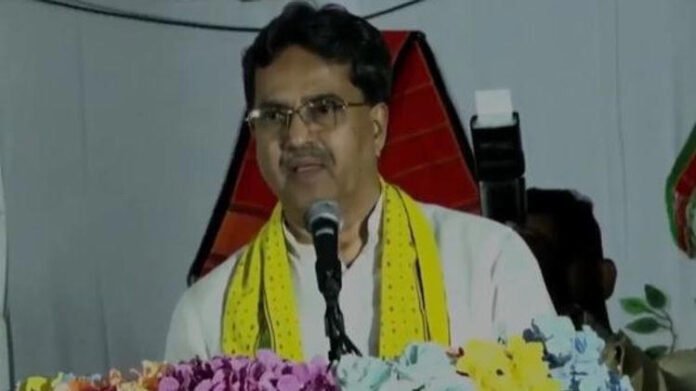Tripura is set to enhance its cultural landscape with the establishment of a state-of-the-art cultural hub, backed by a ₹32.5 crore grant from the Ministry of Development of North Eastern Region (DoNER). This initiative aims to celebrate the state’s rich heritage, promote tourism, and provide a platform for local artists and performers.
Chief Minister Manik Saha’s Vision
Under the leadership of Chief Minister Dr. Manik Saha, Tripura has been focusing on infrastructure development and cultural promotion. In December 2024, he laid the foundation for seven significant development projects in Udaipur, emphasizing the state’s commitment to modern infrastructure in sectors like communication, education, health, and sports. Dr. Saha has also urged investors to explore business opportunities in Tripura, highlighting the state’s unique geographical location and growth potential.
Objectives of the Cultural Hub
The cultural hub aims to:
- Showcase Local Arts: Provide a platform for Tripura’s diverse art forms, including traditional dance, music, and handicrafts. These cultural expressions represent the unique identity of the state and its various communities, such as the Tripuri, Manipuri, and Bengali populations. The hub will enable artists from these communities to share their traditions with the wider world.
- Promote Tourism: Attract domestic and international tourists by offering cultural experiences that highlight the state’s heritage. With its natural beauty and vibrant culture, Tripura has the potential to become a significant tourism destination in Northeast India. The cultural hub will be key to showcasing Tripura’s festivals, folk traditions, and religious events, which could significantly boost the state’s tourism sector.
- Support Artists: Offer training and development programs for local artists, fostering creativity and preserving traditional art forms. These programs will help young artists gain exposure and develop skills in both traditional and contemporary art. The hub will be an incubator for nurturing talent, encouraging innovation, and facilitating collaboration among various artists across different mediums.
- Enhance Infrastructure: Develop modern facilities that cater to various cultural events and exhibitions. These facilities will include auditoriums, performance stages, exhibition halls, and galleries, making the hub a versatile venue for arts and cultural events. The infrastructure will not only cater to large-scale cultural events but also support smaller workshops, performances, and local exhibitions.
Economic and Social Impact
The establishment of the cultural hub is expected to boost Tripura’s economy in several ways. By attracting tourists, the hub will create new business opportunities in hospitality, transportation, and local crafts. As more people visit the state to experience its cultural offerings, the demand for local services will grow, benefiting local entrepreneurs and businesses.
In addition to economic growth, the cultural hub will foster social integration by bringing together diverse communities to celebrate shared cultural heritage. It will provide a space for people from various backgrounds to engage with each other, exchange ideas, and learn about each other’s traditions. This unity will be vital in promoting communal harmony in a state with a rich blend of ethnicities, languages, and traditions.
Moreover, the hub’s focus on cultural education and the preservation of heritage will strengthen the sense of identity among Tripura’s younger generations. It will encourage them to connect with their roots and take pride in the state’s unique cultural diversity. By instilling cultural values and traditions, the hub will play a role in shaping the state’s future by empowering the youth.
A Cultural Revival for Tripura
The creation of this cultural hub is also part of a larger vision for Tripura’s development as a cultural destination. With strong backing from the DoNER Ministry and Chief Minister Manik Saha’s leadership, the state is poised to reinvigorate its cultural scene. The hub is expected to host various international events, including art exhibitions, music festivals, dance performances, and cultural exchanges, bringing global attention to Tripura’s artistic talent.
This initiative also aligns with India’s broader cultural diplomacy objectives, where states are encouraged to leverage their unique cultural identities for international collaboration and recognition. As the state draws attention through its cultural offerings, it could attract foreign investments in other sectors like handicrafts, tourism infrastructure, and education.
Conclusion
With the support of DoNER and the leadership of Chief Minister Dr. Manik Saha, Tripura is poised to become a prominent cultural destination in Northeast India. The cultural hub will not only preserve and promote the state’s rich heritage but also contribute to its economic and social development. As it takes shape, the hub will help Tripura carve a distinct identity on the cultural map of India, ensuring that the state’s arts and traditions continue to thrive for generations to come.
This project marks a new chapter in Tripura’s cultural renaissance, one that could set a precedent for other states in the region. As the cultural hub comes to life, it will undoubtedly play a key role in shaping the future of the state’s artistic community, enhancing its appeal to tourists, and providing lasting benefits to its economy and society.

